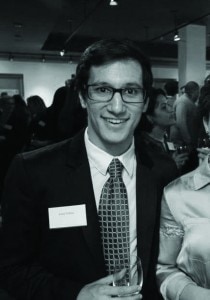“The First Thing We Do, Let’s Kill All the Lawyers?”

There’s a classic Simpsons episode where a stressed-out Marge is on trial for accidentally pocketing a bottle of Bourbon from the Kwik-E Mart. The family hires local ambulance chaser Lionel Hutz – the sole practitioner of “I Can’t Believe It’s a Law Firm!”, a firm that also offers “expert shoe repair” – despite his abysmal record in court and his purported Princeton law degree (Princeton does not in fact have a law school). Hutz impresses the Simpsons over dinner, and after Bart tells him that he “wants to grow up to be a lawyer just like [him]”, Hutz beams and asks the audience to “imagine a world without lawyers”. He shivers at this thought, picturing a world where people of all races, religions, cultures, and nationalities literally hold hands and sing together in verdant fields under rainbow-filled skies.
The Simpsons lawyer-bashing is usually over the top and a comedic hit. There’s the ethically questionable Hutz prepping Bart as a trial witness: “There’s the truth,” he says, frowning and shaking his head sideways, “and – the truth!” he says smiling and nodding. In another episode, Movementarian cult leaders threaten to call in “their deadliest weapon…the lawyers”. But let’s be honest here. And I am being honest here and not just trying to reassure fragile 1Ls or fragile 2Ls or fragile 3Ls with lots of spare time that they are not wasting their lives by entering law. A world without lawyers would be a much, much worse world.
A Canadian inter-university debate last year featured a team of law students from a certain school north of Bloor arguing that the world would be better off without lawyers. In a sort of “lost the battle [but I guess you aren’t wasting your lives]” sort of way, the law students arguing for a lawyer-less world lost the debate and were bested by non-law students arguing that lawyers serve useful purposes in society.
Should we really be surprised? The study of the law is the study of the rules that govern society, after all. Sure, one can argue that the existence of lawyers may lead to rent-seeking and to a disregard for creating laws that are easily understandable by the general public. But sometimes the law needs to be complicated. Modern corporations are complicated. The state apparatus is complicated. Crime is complicated. Sometimes we deal with complex agreements and multifaceted institutions and sometimes a situation is not black and white but is instead nuanced and intricate. Having a group of people whose job it is to understand these complex rules and then fashion coherent arguments and make judgments based on a dense body of law is probably a prudent idea, unless you want all of modern society to crumble.
The clearest way I can say it is that specialization of labour is prima facie a good idea. It ensures that the people who actually interpret and use the law know what they are doing. The rest of society can then concern itself with other lines of work or with leisure (e.g. watching cricket), instead of pulling their hair out while they attempt to make sense of the law (e.g. by reading cases about cricket) [Ed note: 1Ls will get this joke by the end of the week].
But what about the rent-seeking? Surely the increasing litigiousness of society and the appeal of punitive damages just create a world where lawyers encourage us to sue one another frivolously. If you’re an upper-year making this point, then you really should have shown up to torts, legal process, and contracts. There you would have learned, respectively, that: 1) sometimes people have been civilly wronged and genuinely need to sue wrongdoers to get their just compensation (so suits are sometimes just and socially useful); 2) that courts are supposed to throw out frivolous cases; and 3) that punitive damages are only really given out in exceptional cases in Canada. (There’s a test for this in Whiten v Pilot Insurance Co, but like most upper-years I’m sure you sold and never want to read that casebook again). If you’re a 1L making this point, then rest assured that time will eventually ameliorate your ignorance.
Let’s face it: lawyers fulfill a necessary and useful role in our society. There’s a scene in Shakespeare’s Henry VI (Act II, Part IV), where Jack Cade elucidates his idea of a perfect world: a sort of communistic order with Mandryk-ian undertones. Dick the butcher chimes in: “The first thing we do, let’s kill all the lawyers.” In case my paean to the necessity of the legal profession didn’t win you over, the reason why you should disregard the people who argue for a lawyer-less world is because they all quote that line from Shakespeare. This is probably because none of them have even read the play and think it adds colour and legitimacy to their points (it doesn’t). The idea behind a cull of the legal profession wasn’t to cut down on rent-seeking or encourage a simplification of laws; it was to kill anyone who might stand in the way of a contemplated revolution and a new tyranny. Shakespeare intended with that line not to bury lawyers, but to praise them.






